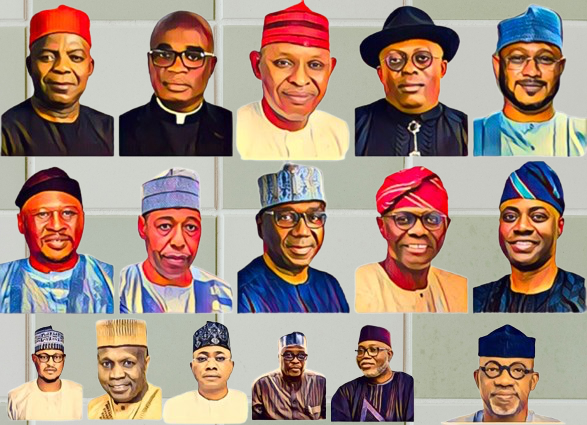KEY POINTS
- Governors’ resource management impacts infrastructure, healthcare, and education.
- State policies drive economic growth and job creation across sectors.
- Security initiatives by governors foster stability and attract investments.
State governors play a major role in shaping Nigeria’s development.
As the highest-ranking officials in their respective states, accounting for about 65 to 70 percent of the allocated revenue, governors oversee policies and projects that directly impact the lives of millions of Nigerians.
From managing state resources to implementing federal initiatives, governors are central to driving progress or stalling development.
Governance and policy implementation
The governor holds a lot of power in the manner in which resources are distributed within his or her state.
Governors should focus of the development of infrastructure, health care facilities and education since these areas will enable the states to become more developed.
This includes such things as good road systems as well as better schools that help to foster good lifestyle conditions as well as investment conditions.
To the same extent, it is a worthwhile venture to understand that the reverse is also true.
Absence of good leadership, corruption, or lack of good Ideas and plan slows development and citizens are left with bad service and worst economies.
These inequalities show that the governors play an enormous role in the management of Nigeria’s development.
Economic development and employment opportunity
Governors are charged with responsibility of proactively providing employment opportunities and stimulating economic growth.
As they patronize local products, facilitate the entry of foreign investors, and establish state-level programmes, they help the unemployed and the poor.
Moreover, states like Lagos and Kaduna demonstrate how governors can prioritize industrialization and entrepreneurship to stimulate growth.
Governors also affect state revenues and expenditures, how for instance, much money is allocated for such sectors as agriculture, technology or tourism.
These decisions entail choosing between development options that allow new economic activities to diversify states’ economies, or force states to remain dependent on federal distributions.
Security and social stability
In a country facing challenges such as insecurity, governors play the important role in stabilizing the country.
They directly apply managing state police systems, coordination with the federal security agencies and crises dealing with development.
The relatively safe nations are therefore more sustainable and will certainly draw more companies, capital and brain power in general development.
All the governors have the potential and privileged power to determine development agenda right from economic sector to the social sector.
More than community selves, they determine their states and, in effect, help determine the course of the nation.
Moreover, by prioritizing accountability, innovation, and inclusivity, governors can be true agents of change in Nigeria’s development.



